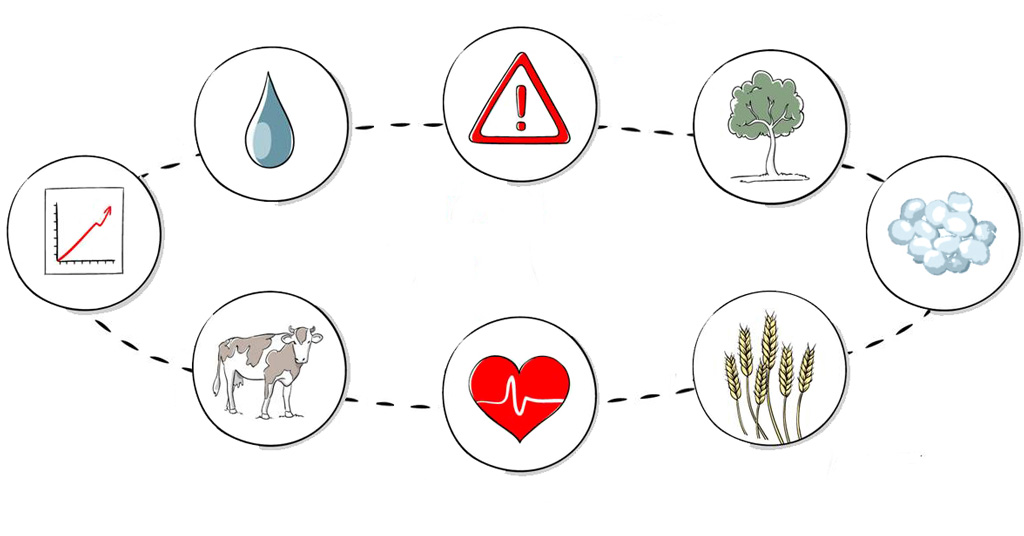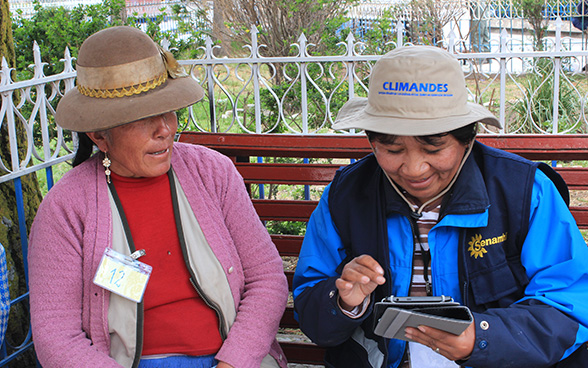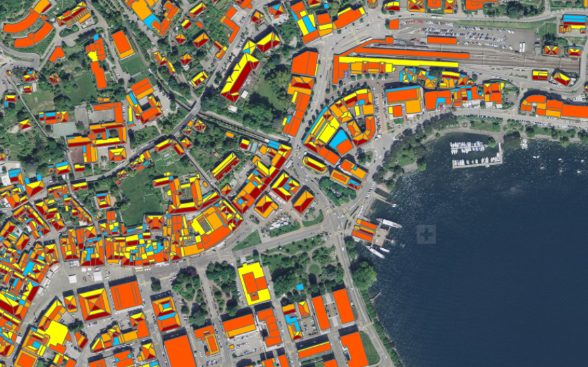The NCCS develops user-centred climate services in a variety of priority themes. These services serve as a basis for decision-making in administrative, political, economic and societal spheres.

Topics
Climate Change Scenarios for Switzerland
Where and how does climate change affect Switzerland?
Forestry
Which types of trees should we be encouraging now? Which ones are able to provide good timber yields and serve as habitats for flora and fauna in spite of high temperatures and drought?
Health
To what extent will heat waves increase? What implications will this have for the population?
Animal health and food safety
The Federal Food Safety and Veterinary Office (FSVO) is constantly investigating the link between climate, animal health and food safety. This research is making it possible to identify risks to humans and animals at an early stage and take countermeasures in good time.
Agriculture
Is pressure from pests increasing in fruit growing, viticulture and arable farming? What implications does this have for plant protection?
Energy
Is the roof of my house suitable for solar panels?
Water resources
How will water availability and quality change? How can drinking water security be ensured everywhere in Switzerland going forward?
Dealing with natural hazards
Will there be heavier rainfall and bigger floods in future? How can we improve the ways in which we deal with natural hazards in a changing climate?
Hail
Where does it hail most frequently in Switzerland? How large can hail stones grow in extreme cases?
The NCCS is currently developing climate services in eight sectoral and cross-sectoral priority themes. Other projects are also planned for the future. The current priority themes are:
Further activities
Climate services video
Learn more about the NCCS key focus areas in our NCCS video.
Last modification 22.12.2021
















